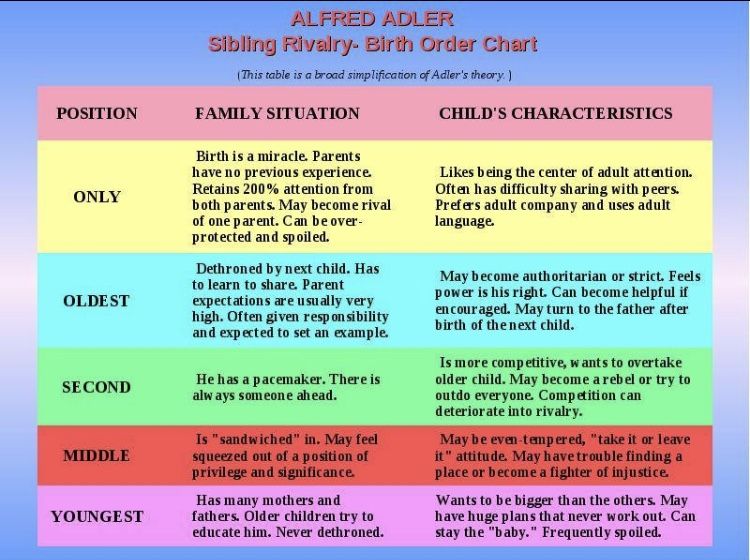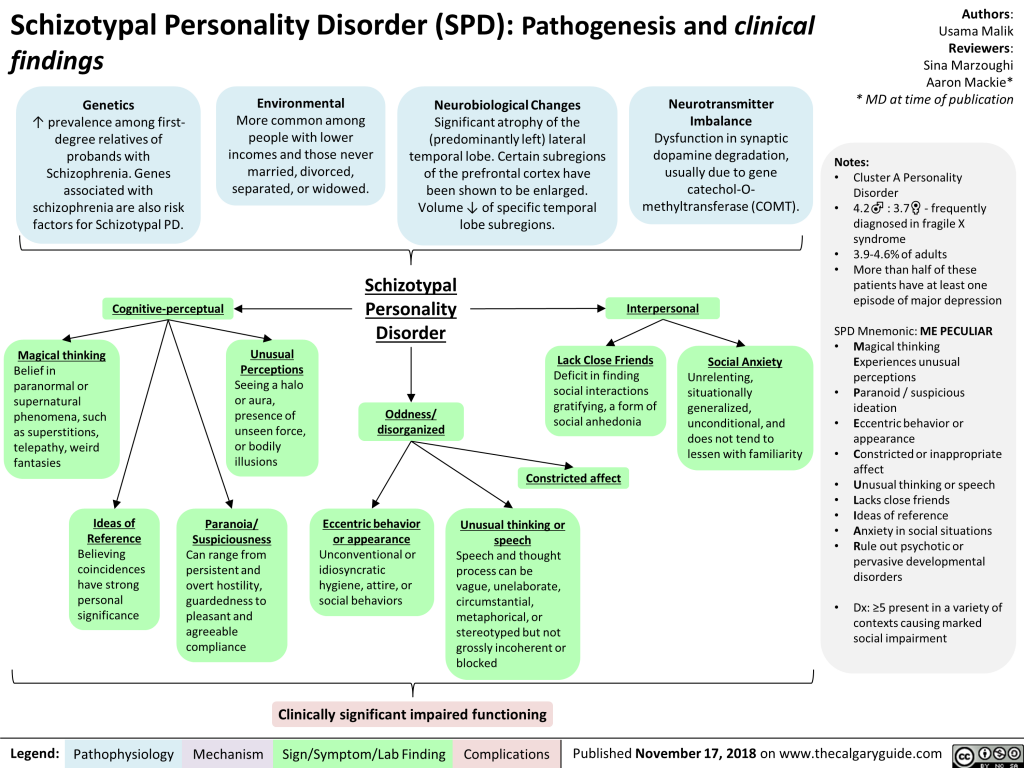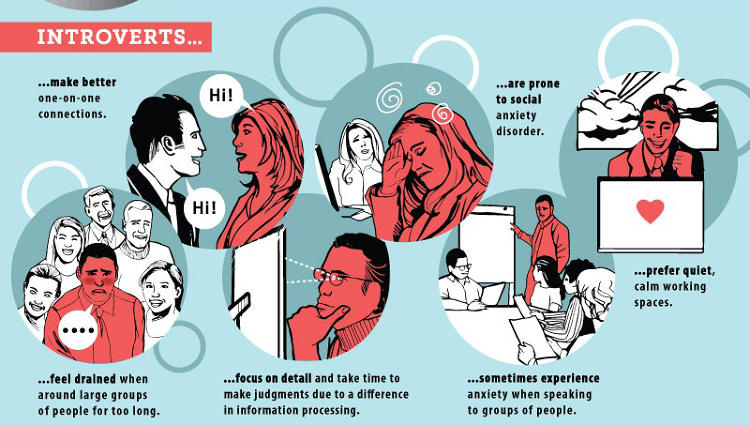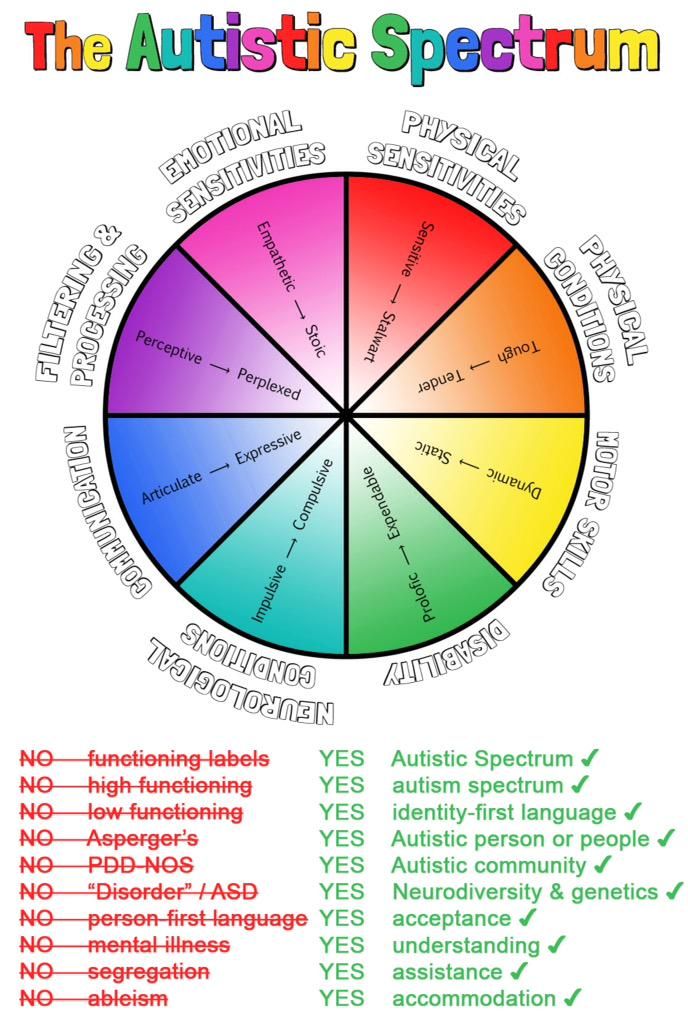Birth order meanings
Birth Order Theory: Insights Into Your Personality
Developing one's personality can come from a variety of sources and influences in a child's life, it can be fascinating, and important to understand those influences. One great way to understand the influence of birth order on one's personality is to discuss it with a therapist as they may be able to help you identify parts of your identity and how they developed. Understanding this and other aspects of one's identity is only one reason therapy can be beneficial. Having an online therapist can also help.
Learn More About How Birth Order Has Influenced Your Life
Talk To A Family Expert Online
The study of personality and its formation has interested researchers, psychologists, and scientists for centuries. Personality refers to an individual's different patterns of thinking, behaving, and feeling. People's personalities encompass nearly every aspect of their human experience. Studying variables like personalities usually falls into two categories:
- Understanding differences in people's personality characteristics- like temperament, sociability, and motivation
- Discovering how various parts of a person come together as a whole
There are many theories of how personality forms, adapts, and is affected by one's external environment that vary across cultures and associations. One personality study focuses on a person's birth order, and their subsequent relationships with their siblings. Birth order theory was developed by Alfred Adler in the twentieth century; it stated: the order in which a child was born impacted his or her personality. We will go over this idea further in this article.
Birth Order Theory: Adler's Research
Alfred Adler was born just outside Vienna in 1870. He started his medical career as an ophthalmologist; then, switched to general practice in a less affluent part of Vienna. In 1907, he met Sigmund Freud and developed a working relationship with him and other prominent psychoanalysts of the time. As Adler progressed in his career, he sought to create a psychological movement based on a holistic view of an individual. Unlike Freud, Adler believed the social and community aspects of a person's life were just as important as internal thoughts and emotions. Adler's desire to understand how social factors influence personality extended to child development. His birth order theory described how the effect of birth order shaped a child's thoughts and behaviors from first born children to the youngest children, as well as all in between.
His birth order theory described how the effect of birth order shaped a child's thoughts and behaviors from first born children to the youngest children, as well as all in between.
What Birth Order Theory Is Not
Birth order personality traits are not necessarily present when a child is born into a family. For example, firstborn children are not born with niche or particular personality traits ingrained in their psyche. Instead, in birth order theory, Adler illustrates how family environments and dynamics play a role in shaping individual psychology during a child's formative years. Though every family is different, there are many similarities between the interactions of parents and children, as well as siblings, as kids grow and develop in the same family.
The Family's Role in Birth Order Personality Traits
Birth order research and studies show that there are several influences shaping personality in addition to birth order personalities.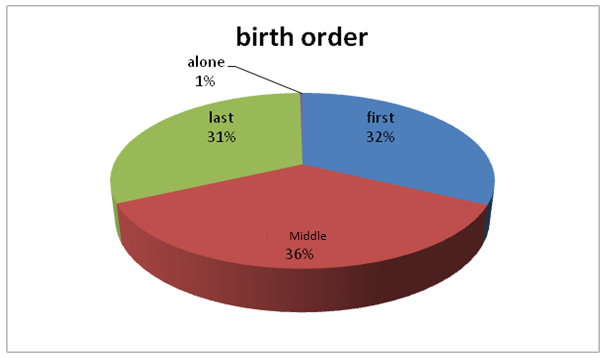 Common factors include:
Common factors include:
- Biological: Children inherit many traits and features from their parents. These include intelligence, courage, and physical features.
- Social: By interacting with others in an individual's social circle, children learn behaviors and thought patterns from their experiences, like those in the education system and beyond.
- Cultural: A child growing up within a culture consciously or unconsciously adopts traits consistent with the culture's beliefs, ideas, and norms.
- Physical Environment: An individual's surroundings often impact the development of personality. For example, the personalities of those growing up in a rural area are often very different from those living in an urban environment.
- Situational: As a child grows, they face different situations, which help them adapt and change aspects of their personality. This could be meeting new friends, experiencing a trauma, or, of course, welcoming a new sibling.

When looking at these factors, we see family life can incorporate all of these. Since most children's lives are, at first, shaped by everything going on in the family, it is no wonder birth order theory has remained relevant throughout the decades.
The following traits are general examples of how birth order differences and personality are related. Of course, many other factors could impact the average development of a child's personality; some of these reasons will be discussed later.
Only Children
These children tend to get much more attention from adults than a child with siblings. This means many of their early interactions involve individuals significantly older than them. These interactions can make them feel like "tiny adults," and they can seem more mature than peers with siblings. Traits include:
- Confidence
- Mature for their age
- Sensitive
- Uses adult language
- Self-centered
- Pampered and often spoiled
- Enjoys being the center of attention
- Feels unfairly treated when not getting their own way
- May refuse to cooperate with others
- Desire to be more like adults, so may not relate well with peers
- Can be manipulative to get their way
First Child
Since the firstborn child is used to being an only child until the later-borns come along, he or she may exhibit some of the characteristics of an only child. Also, the firstborn may have these birth order personality traits:
Also, the firstborn may have these birth order personality traits:
- Achiever and leader
- Feels must have superiority over other children
- May have difficulty when the second child is born, such as feeling unloved or neglected
- Can be controlling and focused on being correct about results
- Uses good (or bad) behavior to regain parents' attention
- Bossy or authoritarian about rules
- Strives to please others
- Reliable
- Can be or helpful towards others
Learn More About How Birth Order Has Influenced Your Life
Talk To A Family Expert Online
Second Child
The second born children and middle children began their lives, the attention of their parents with the firstborn. By having an older sibling as a role model, the second born often tries to catch up with the older children. Adler believes the second child is most likely to be better adjusted in life. A second child could be:
- More competitive
- Lacking the undivided attention of parents
- A people pleaser
- A peacemaker
- Developing abilities the first child doesn't exhibit to gain attention
- Rebellious
- Independent and does not need the support of others
Middle Child
Many have heard of the "middle child syndrome" and the difficulties these children can present.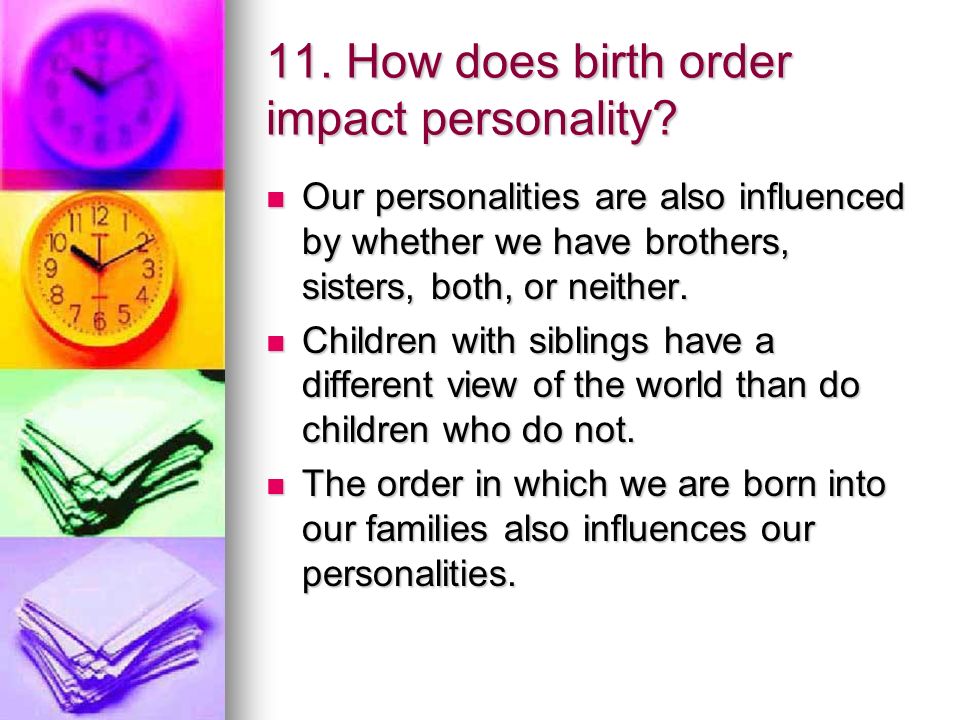 Considering the significant changes they deal with early in life, it's no wonder they could become frustrated or resentful. Not only do they lose their "youngest child" status, but they also have to their attention with older and later born children. Middle born of bigger families often aren't as competitive as single middle children, since their parents' attention is spread thinner for bigger family dynamics. Middle children in bigger families are more prone to using cooperation to get what they want. Middle child traits include:
Considering the significant changes they deal with early in life, it's no wonder they could become frustrated or resentful. Not only do they lose their "youngest child" status, but they also have to their attention with older and later born children. Middle born of bigger families often aren't as competitive as single middle children, since their parents' attention is spread thinner for bigger family dynamics. Middle children in bigger families are more prone to using cooperation to get what they want. Middle child traits include:
- Can feel life is unfair
- Can be even-tempered
- May feel unloved or left out a lot
- Doesn't have the rights and responsibilities of the oldest sibling or the privileges of the youngest
- Adaptable
- Impatient
- Outgoing and rambunctious
- Learns to deal with both older and younger siblings
- Treating younger siblings rougher
- Feel "squeezed" in the family environment
Youngest Child
The last born child cannot be dethroned by a younger sibling. The "baby" of the family tends to get more attention from parents, since the older siblings are developing and becoming more independent. Traits of the youngest child:
The "baby" of the family tends to get more attention from parents, since the older siblings are developing and becoming more independent. Traits of the youngest child:
- Charming and outgoing
- Attention seeker
- Can behave like the only child
- Feels inferior- like everyone is bigger or more capable
- Expects others to make decisions and take responsibility
- May not be taken seriously
- Can become "speedier" in development to catch up to other siblings
Other Factors Influencing Birth Order Personality
As we all know, each family is different and has unique dynamics. The subject of birth order positions alone will not determine the complexities of one's personality. As child and family develop and evolve, certain circumstances or measures may impact the personality of a child. Across different families, children of the same birth order will show diverse personality differences, especially across a large representative sample.
Blended or Step-Families
When two parents remarry, especially when children are in their formative years, the family unit goes through a period of disorientation and competition. For example, two firstborns in the new family will search for their "place" and may compete to keep their "first born status" with the new family size and information.
Differences in Ages
When there is an age gap of three or more years between siblings, it is common for the birth orders to restart. In a family with many children, this could create birth order subgroups with varying birth order effects.
Health and Mental Issues
A child born with significant physical or neurodevelopmental disabilities can remain in the "youngest" position regardless of the birth order. This impacts the psychological birth order position of the other children.
Gender of Siblings
The most psychological competition occurs between children of the same gender similar in ages.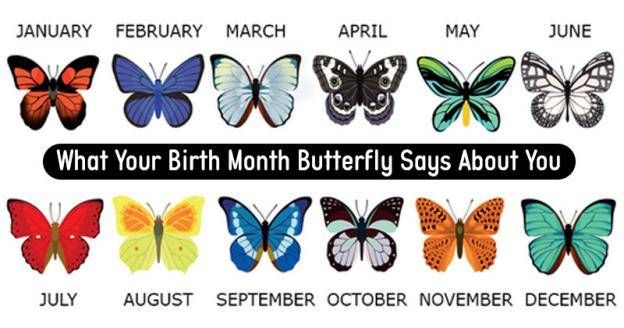 The competition, in part for parental attention, can start in childhood and move into young adulthood and beyond.
The competition, in part for parental attention, can start in childhood and move into young adulthood and beyond.
Death of A Sibling
The impacts of a child's death are devastating for families. This includes the personalities of the surviving siblings. Some children may adapt by developing overindulgent tendencies. Also, a glorification of the deceased child can occur- where other siblings could never live up to the pristine image of the deceased sibling. This can deeply alter the birth order effect.
Adoption
An adopted child often has special circumstances in the family dynamic. For parents with difficulties conceiving, having an adopted child may be seen as a special gift. These parents have a greater tendency to spoil or overindulge the child. When an adopted child comes into an established family, he or she may find difficulties fitting into the dynamic. Emotional struggles due to not being wanted by birth parents and not fitting in with biological siblings are common.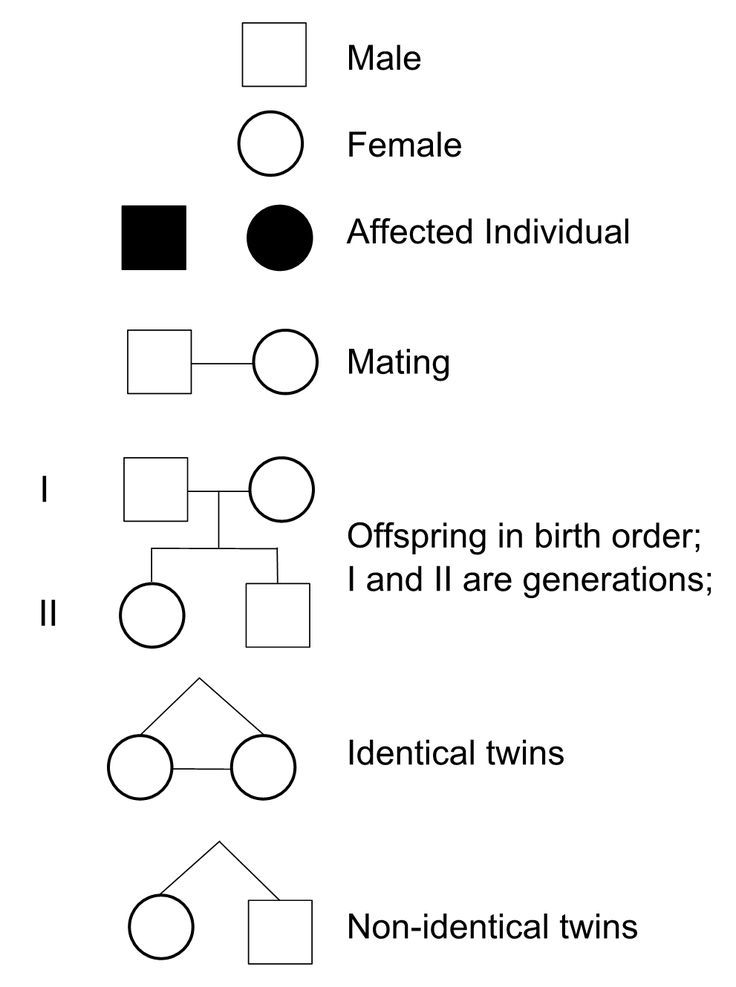 Sometimes these feelings of inadequacy warrant therapy.
Sometimes these feelings of inadequacy warrant therapy.
Does the Correlation ofBirth Order and Personality Exist?
Previous research and science has linked higher intelligence to family's eldest children. This could be due to the fact that parents have more emotional and intellectual resources to give when fewer children are present in the body of the family.
In a study of more than 20,000 participants, however, data revealed no significant effects of birth order of the Big Five personality traits. These include extraversion, emotional stability, agreeableness, conscientiousness, and openness to experience.
Does this mean birth order theory should be discarded? Probably not. This only proves the formation of personality is not simply explained by a child's birth position in the family. Multiple factors, including socioeconomic status, parental attitudes, gender roles, and social influences, also contribute to shaping an individual's personality.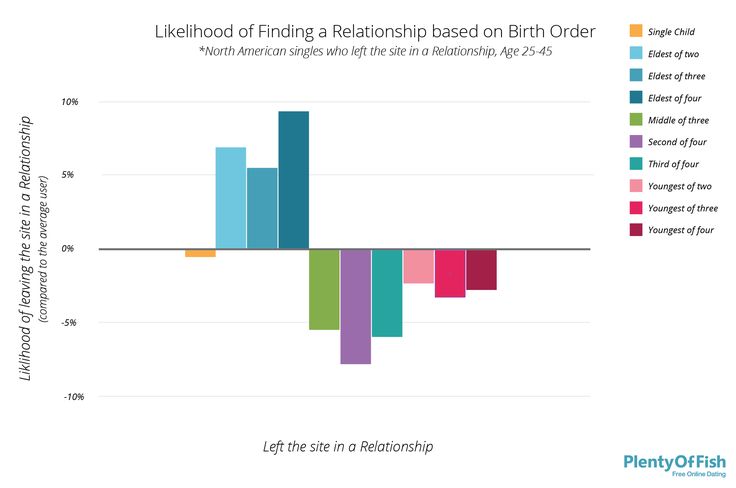 Birth order may explain some everything from people's tendencies to career and relationship outcomes, but everything going on in a person's life must be considered. All factors must be considered in the development of personality, including psychology, sociology, and economic research.
Birth order may explain some everything from people's tendencies to career and relationship outcomes, but everything going on in a person's life must be considered. All factors must be considered in the development of personality, including psychology, sociology, and economic research.
If you are struggling with emotional issues, a psychotherapist may be able to illuminate how your personality plays a part. Psychotherapy can help find the root cause of some issues while allowing you to discover the necessary changes needed to live a happy, fulfilling life. If a traditional therapy setting is too cost-preventative or not a feasible option, consider using affordable online counseling through BetterHelp. The licensed and accredited therapists of BetterHelp can give you a new option for regaining emotional control of your life. Read below for some reviews of BetterHelp counselors, from people experiencing issues related to family and birth order.
Conclusion
Your personality may or may not have anything to do with your birth order. There are many things you can do to become attuned to yourself and your personality. If you find your personality is causing you stress, a therapist can help. The only thing standing between you and your peace is a few clicks. Take the first step today.
There are many things you can do to become attuned to yourself and your personality. If you find your personality is causing you stress, a therapist can help. The only thing standing between you and your peace is a few clicks. Take the first step today.
Here are some popular questions about the topic:
Which birth order is most successful?
What did Adler say about first borns?
Does birth order really determine your personality?
Is birth order theory nature or nurture?
Which sibling is usually the smartest?
Are middle children smartest?
Why is the first born son so important?
Does birth order affect IQ?
Why is birth order important to psychology?
How does birth order affect child development?
Who created the birth order theory?
Commonly Asked Questions On This Topic Found Below:
Which birth order is most successful?
There isn’t necessarily one particular birth order that is most successful, that is to say, that will have the best emotional well being, the best health benefits, the best immune system, the best physical mental and emotional condition, a longer life, etc.
That said, there are cases that can be made for certain children. Only children and eldest children may have more resources than children with siblings or who are born later and have fewer resources. On the other hand, children who have fewer resources may have to work harder and learn a better work ethic, leading to more success later in life. It’s hard to say in today’s fast paced world, in today’s tough environment (on a both mental and emotional level), which birth order would be most successful. There are no guarantees.
What did Adler say about first borns?
Adler believed that birth order would necessarily affect personality. For him, first borns may end up neurotic and have difficulty with physical mental and emotional issues. Their overall well being may be compromised given their shift in status from the first and only to no longer being the preferred child with the addition of more children to the family.
Does birth order really determine your personality?
Does birth order affect personality? Emotional health? Immune system? Getting enough sleep? Whether or not one might exercise regularly? Have good energy levels? Or feel guilty for doing something bad? These are the sorts of questions people often have about birth order and personality.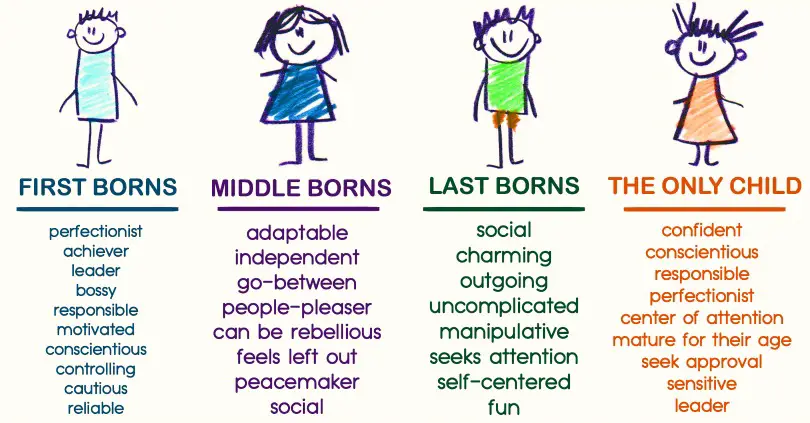
Ultimately, however, the jury is still largely out on the connection between mental health conditions, personality, physiology, and more when it comes to birth order. While it may be worth considering on your self care journey and as you try to figure out how to create a healthier you, it’s only a small part of what makes you who you are, and you should consider consulting a mental health professional to optimize this process.
Is birth order theory nature or nurture?
Birth order theory takes into account both nature and nurture as it considers both the simple act of being born and the huge effect of being raised in a family and one’s relation to our siblings (or lack thereof). There’s no doubt that social connection plays a big role in the way we turn out. If one child experiences unconditional love, and another does not, the first child is likely to have a happier and more successful life (but this is never a guarantee). The child who is loved unconditionally may end up with more stress and skip on out to the next town as soon as possible and get mixed up with the wrong people. This would mean they have a higher risk of turning out “badly.” But this is all rather unscientific conjecture.
This would mean they have a higher risk of turning out “badly.” But this is all rather unscientific conjecture.
A child who is not loved unconditionally may practice good physical self care and figure out the best ways of reducing stress (e.g. a long walk, spending time in green spaces, taking a hot bath, prioritizing me time, etc.). This would mean that the “nurture” side of things (self-nurture or self care in this case) would override the “nature” side (i.e. being born in a certain order).
How do I overcome my birth order?
If you’re concerned about your birth order and how it has affected your life, that’s okay. You can always consult a specialist (like those available through BetterHelp). You can also be sure to practice good self care strategies to boost your overall wellness in healthy ways. Here are some that you can add to your to do list:
- Make a to do list to stay organized and minimize stress and procrastination
- Opt for a meal kit or meal delivery service to save time and reduce stress (on your lunch break or at dinnertime)
- Tune out news feeds that stress you out
- Before your day begins, do some meditation, yoga, or other exercise.
 A little practice goes a long way
A little practice goes a long way - Don’t feel obligated to help everyone and fix everything
- Focus on a healthy diet with more fruits, green leafy veggies, fatty fish and other nutritious foods (and avoid fast food, and greasy and fried foods). This is hugely beneficial and can reduce stress, lead to lower blood pressure, and improve your heart health and energy levels (as well as reducing your chances of heart disease, weight gain, etc.)
- Establish a nightly routine to unwind, reduce stress, and optimize sleep. If you meditate meditation can help you relax as well for better sleep. This could even be just grabbing a book and trying to sit quietly
- Research shows that daily exercise can be a great natural antidepressant
- Engage in leisure activities that you enjoy (e.g. watching a good movie, going for a walk, gardening, etc.)
- Take time out of your day to acknowledge what you are grateful for
- Focus on others and providing companionship and mentorship
Develop self care strategies that work for you and be sure to follow through. Practicing self care can be simple and easy, including taking a few minutes to establish healthy boundaries, walk your service dogs, make a healthy meal, etc. Manage stress and you will manage your blood pressure and your mental health as well as boost your immune system and emotional health in general. Take care of yourself and you will feel so much better.
Practicing self care can be simple and easy, including taking a few minutes to establish healthy boundaries, walk your service dogs, make a healthy meal, etc. Manage stress and you will manage your blood pressure and your mental health as well as boost your immune system and emotional health in general. Take care of yourself and you will feel so much better.
Birth Order: What You Should Know
Written by WebMD Editorial Contributors
Reviewed by Dan Brennan, MD on June 28, 2021
In this Article
- The Science of Birth Order
- Birth Order and Intelligence
- Birth Order and Health
- Other Factors That Influence Birth Order
Birth order has been used to predict success, prosperity, jobs, and more. But does it really affect who you are and what you do in life? Here's a closer look at the truth and science behind birth order.
The Science of Birth Order
A researcher named Alfred Adler developed birth order theory in the 20th century. The theory claims that the order in which a child is born shapes their development and personality. Adler also claimed that family, community, and social aspects play a major role in shaping a child’s personality.
The theory claims that the order in which a child is born shapes their development and personality. Adler also claimed that family, community, and social aspects play a major role in shaping a child’s personality.
Today, many psychologists believe that where you fall in your family’s birth order has a major impact on your personality development.
Oldest child. If you're the firstborn child, you have your parents all to yourself for a period of time. Because it’s your parents’ first time being parents, they tend to dole out attention to you. They’re also extra careful when it comes to all aspects of child rearing — from bumps and bruises to early education. Eldest children benefit from all this attention.
Your parents might expect a lot from you if you're the oldest, especially as other children are born into your family. Your parents might seem stricter with you, and often expect you to set an example for your younger siblings and show responsibility.
Studies show if you're the eldest child, you tend to demonstrate leadership skills. Maybe you're a leader in the workplace already, or rising to the top of your industry.
Middle child. It’s a stereotype that if you're a middle child you're a peacekeeper, but there seems to be a grain of truth behind the saying. Because you lack the title of being the oldest or the youngest, you seek to carve out a niche for yourself in the family dynamic. You tend to enjoy negotiation and compromise. You can often relate to people of different ages with ease.
You can be competitive with your older sibling — maybe by breaking their sports records, becoming more fluent in a language, or getting better grades. Or you might behave more rebelliously.
Youngest child. As the baby of the family, you tend to take one of two paths when developing your personality, according to Adler. The first path is a clear journey to success, where you try to excel in every way, often becoming the go-to person in the family. Youngest children can also become avoidant if they lack the confidence or drive to excel.
Youngest children can also become avoidant if they lack the confidence or drive to excel.
You might have freedoms your older siblings don't have. As your parents’ rules become more relaxed, your parents can be more hands-off with you. You're usually assured of your place in the family and can be very creative, rebellious, and outgoing.
Only child. If you're an only child, you've been surrounded by adults since birth. That’s not to say you weren’t socialized with other children through kindergarten, the playground, or school. But during your time at home you socialized with parents and other adults, mimicking their behaviors and becoming "small people".
Your parents might be overprotective of you, leading you to become dependent on your parents for support. You aren’t used to sharing clothes, space, or parental attention with siblings. This can make you intelligent and creative, but also stubborn and set in your ways.
Birth Order and Intelligence
Some theories claim that firstborns are more intelligent and have a higher IQ than later-borns. But the most recent studies show that firstborns only hold a 1-point IQ advantage on average over their siblings. Social factors could be to blame for this idea.
But the most recent studies show that firstborns only hold a 1-point IQ advantage on average over their siblings. Social factors could be to blame for this idea.
Another study shows that firstborns might benefit from being surrounded by adults during their first years. They absorb the way adults talk, while later-borns are more exposed to the less-developed ways their siblings speak.
The same study found that firstborns often take a leadership and teaching role to their younger siblings. Some theories say tutoring improves the intelligence of the tutor — in this case, the older sibling.
Birth Order and Health
Some people think birth order affects health. Studies suggest if you’re the oldest, you're more likely to have a lower birth weight than your siblings.
Later-born children have an increased risk of hospitalization due to avoidable accidents. This could relate to a lack of parental attention in a large family. Younger siblings may struggle with mental health during puberty and young adulthood, and are more likely to be admitted to the hospital for reasons relating to alcohol.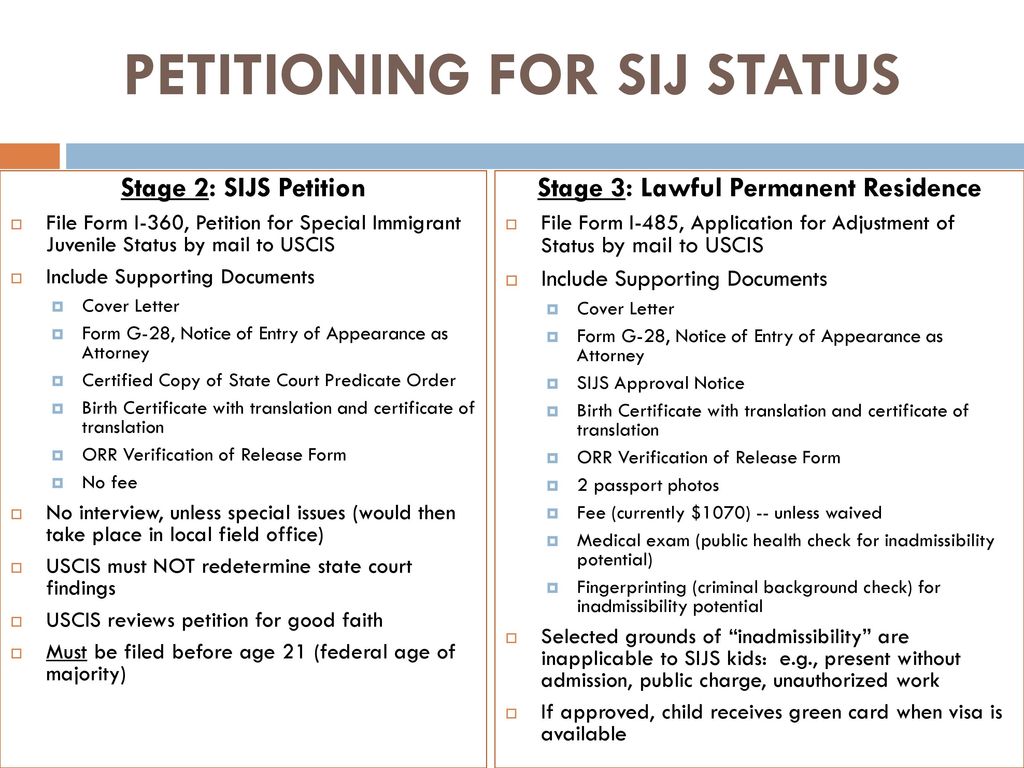
Overall, researchers found most birth order differences are due to where your parents choose to spend their time and resources.
Other Factors That Influence Birth Order
Birth order is a complex subject. There isn’t a “one-size-fits-all” for every family. Different factors affect social family dynamics, and results differ from child to child and family to family.
Some other factors that influence birth order include:
- Parental attitudes and culture. In some cultures, even if a boy is born after four girls, he may still be treated as the oldest.
- Age difference. Adler notes that if children have an age difference of more than three years, subgroups with different dynamics may form. Most experts agree, but place the age gap at five years.
- Twins. Most twins get special attention from parents, so experts say these rules don’t necessarily apply.
- Confidence. A child’s opinion of themselves determines their outlook and attitude.
 While birth order helps shape their personality, it’s not the only factor.
While birth order helps shape their personality, it’s not the only factor.
Features of human behavior depending on the order of birth.
We all come from childhood and behavior in adulthood is largely determined by our childhood strategies. And not least of all is the order of our birth. For the preparation of this article, I used the writings of Alfred Adler. This article will not just talk about how a person born first or second behaves, but how he can behave in interaction with other people, in particular at work.
Alfred Adler, one of the famous psychoanalysts, noticed that even if children have the same parents and grow up in approximately the same family conditions, they can still have completely different characters. The experience of the older or younger child in the family in relation to other children, the peculiarities of parental upbringing - all this changes after the appearance of the next children in the family and strongly influences the formation of the children's lifestyle and, as a result, their further interaction with society.
According to Adler, the order in which a child is born in a family is crucial. He singled out and characterized the main problems that a child may face in life, depending on the order of his birth in the family.
Firstborn (oldest child).
According to Adler, the position of the firstborn can be considered enviable as long as he is the only child in the family. Parents are usually very worried about the appearance of the first child, and therefore give themselves entirely to him, striving for everything to be “as it should be”. The firstborn receives boundless love and care from their parents. He generally enjoys his safe and serene existence. But this continues until the next child deprives him of his privileged position by his appearance. This event can dramatically change the position of the child and his view of the world.
Adler often described the position of having a first child at the birth of a second child as that of an "unthroned monarch" and noted that the experience could be very traumatic. When an older child watches his younger brother or sister win the competition for parental attention and tenderness, he will naturally try to win back his supremacy in the family. However, this battle is doomed to failure from the very beginning - the former cannot be returned, no matter how hard the first-born tries. Over time, the child realizes that the parents are too busy, too twitchy, or too indifferent to tolerate his infantile demands. In addition, parents have much more power than the child, and they respond to his difficult behavior (demanding attention) with punishment.
When an older child watches his younger brother or sister win the competition for parental attention and tenderness, he will naturally try to win back his supremacy in the family. However, this battle is doomed to failure from the very beginning - the former cannot be returned, no matter how hard the first-born tries. Over time, the child realizes that the parents are too busy, too twitchy, or too indifferent to tolerate his infantile demands. In addition, parents have much more power than the child, and they respond to his difficult behavior (demanding attention) with punishment.
As a result of such family struggles, the first-born "learns to be isolated" and learns the strategy of surviving alone, without needing anyone's affection or approval. Adler also believed that the eldest child in the family is likely to be conservative, power-hungry and predisposed to leadership. Therefore, he often becomes the keeper of family attitudes and moral standards. Accustomed to take care of the younger and protect him, he also grows up as a rule caring, prone to fatherhood (motherhood), often in his further family relationships takes the initiative in his own hands.
Such children are very responsible in their adult life. They become good managers and administrators. True, there are some nuances in working moments. For example, an older child has a complete belief that he is the best and underestimates that the environment and those behind it can grow and develop. And this moment often plays a cruel joke with him. With such a perception of the world around him, he risks one day being left out of work. And it is important that older children treat their employees as younger brothers or sisters, and this is also often not in his favor, since a moment of distance may arise and the work of the subordinate is performed by the leader (a common situation).
Second (middle) child.
The second child is set the pace from the very beginning by his older brother or older sister: the situation stimulates him to break the records of his elders. Due to this, often the rate of its development is higher than that of an older child.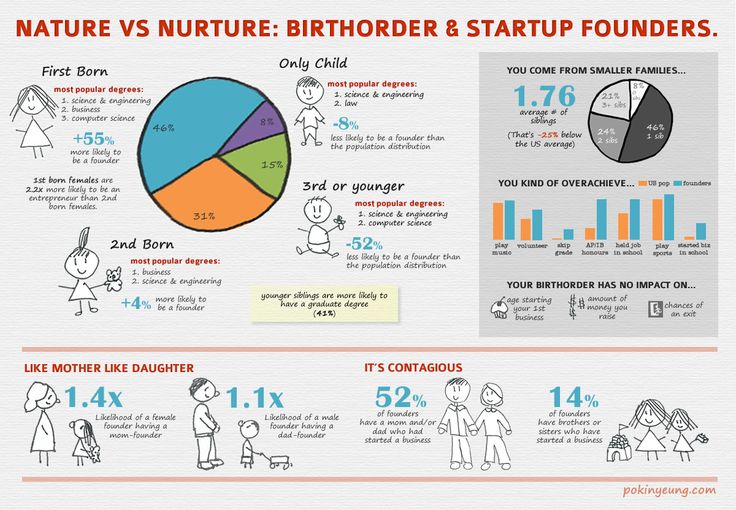 For example, the second child may start talking or walking earlier than the first.
For example, the second child may start talking or walking earlier than the first.
In addition, the middle child must take care of the younger ones and, in addition, fight with him for the love of his parents. This only increases his ambition and level of ambition. But nevertheless, he, accustomed to take care of the younger, as a rule is not inclined to grow up as an egoist.
As a result, the second child grows up to be competitive and ambitious. His lifestyle is determined by the constant desire to prove that he is better than his older brother or sister. So, the average child is characterized by an achievement orientation. To achieve superiority, he uses both direct and roundabout methods. Adler also believed that the average child could set exorbitantly high goals for himself, which actually increased the likelihood of possible failures.
There are, however, a few reservations. For example, the second children most often, competing with the elder, take the position of revolutionaries. They go against. In the working environment, on the one hand, this position helps, but on the other hand, it hinders. Since the second children often go against the elder, that is, the leader, or even worse in adulthood, they go against the system - the state.
They go against. In the working environment, on the one hand, this position helps, but on the other hand, it hinders. Since the second children often go against the elder, that is, the leader, or even worse in adulthood, they go against the system - the state.
According to the modern approach of the science of ontopsychology, the first and second children should be divided by gender. It doesn’t matter which boy was born first or second, because for parents on a psychological level, children of both sexes are a novelty. A boy and a girl are different. Then, if the second girl or boy appears, they become the second. This is an important point, because when a second girl or boy appears in the family, they no longer carry the novelty that the first child of the same sex brought. The second child feels this and has been trying with all his might since childhood to win his championship by competing with the older one. The situation is also aggravated by wearing out things, comparing with the first, etc.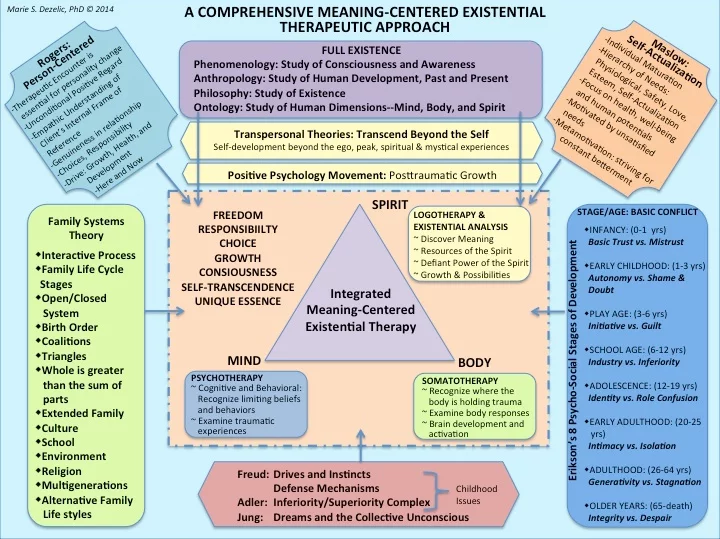 It is said that if Lenin had not been the second child, he would never have created a revolution. In work, the second children are excellent innovators, start-ups, they can open new markets and compete well for them.
It is said that if Lenin had not been the second child, he would never have created a revolution. In work, the second children are excellent innovators, start-ups, they can open new markets and compete well for them.
Last child (youngest).
The position of the last child is unique in many ways. Firstly, he never experiences the shock of "deprivation of the throne", and, being the "baby" or "darling" of the family, he can be surrounded by care and attention from not only his parents, but, as happens in large families, older brothers and sisters. Secondly, if the parents are limited in funds, he has practically nothing of his own, and he has to use the things of other family members. Third, the position of older children allows them to set the tone; they have more privileges than him, and therefore he experiences a strong sense of inferiority, along with a lack of a sense of independence.
From childhood, he learns to find common ground with others, how to negotiate with the elder, and as with the younger, but as with his mother. These are favorites. Usually they are loved by everyone and have many friends. They are easy to recognize in a team, as they are always in the spotlight. This is where development becomes important. Often the last children achieve everything by establishing contacts, but do not grow professionally, as they rely on their charm. Such an infantile attitude to life. Therefore, despite the charm, it is worth paying attention to professional aspects in working with this psychological type.
These are favorites. Usually they are loved by everyone and have many friends. They are easy to recognize in a team, as they are always in the spotlight. This is where development becomes important. Often the last children achieve everything by establishing contacts, but do not grow professionally, as they rely on their charm. Such an infantile attitude to life. Therefore, despite the charm, it is worth paying attention to professional aspects in working with this psychological type.
Only child.
Adler felt that being an only child was unique because he had no other siblings to compete with. This circumstance, along with a special sensitivity to maternal care, often leads the only child to a strong rivalry with the father. He has been under the control of his mother for too long and too much and expects the same protection and care from others. The main feature of this lifestyle is dependence and egocentrism.
Such a child continues to be the center of family life throughout childhood. Later, however, he kind of suddenly wakes up and discovers that he is no longer in the spotlight. The only child never shared his central position with anyone, did not fight for this position with brothers or sisters. As a result, he often has difficulties in relationships with peers.
Later, however, he kind of suddenly wakes up and discovers that he is no longer in the spotlight. The only child never shared his central position with anyone, did not fight for this position with brothers or sisters. As a result, he often has difficulties in relationships with peers.
Since childhood, only children perceive the world around them as their own. They don't even think about the fact that there is someone else who can come and take it from them. They like to be in the center of attention, but they underestimate the environment, do not pay attention to others, and this is very important, especially if you work in a team. Single kids will always try to be the best mom/boss.
Basic things are described here, they are not dogmas, but when working with personnel, you can try to take into account such a factor as birth order.
Prepared by Maria Savchenko
- Alexander Bobkov "How to create and develop highly productive teams"
- Elena Zhdanova "Change Management"
- Konstantin Zusmanovich "Pitfalls in project management"
- Alexey Kuznetsov "Tools of a business coach in management"
Birth order | it's.
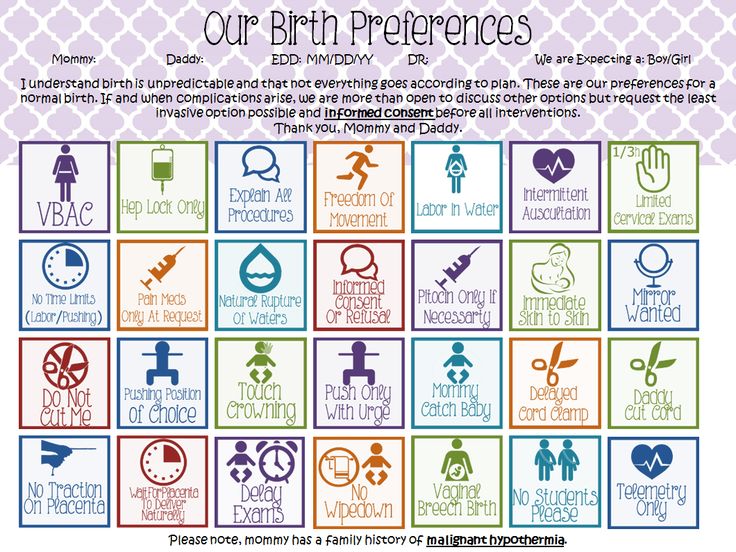 .. What is the birth order?
.. What is the birth order? Empirical Research Etc. associated with the search for stable links between personal variables and ordinal place in the family. These research. are unsystematic in nature and are almost always devoid of c.-l. theoret. prerequisites, so there is a lot of conflicting data in the literature.
A typical technique for such studies. is a clarification (usually in the form of surveys) of P. R. that does not take into account variables associated with the ordinal place in the family itself, such as age, separation of siblings, gender differences, abortions, miscarriages or stillbirths. Published results are often inconclusive because researchers don't compare people with the same birth status. The weakest point is the lack of an established research model. in this region. Most researchers do not consider P. p. as a determinant of personality, but they believe that it is an independent characteristic of the environment that affects the individual.
Empirical studies will be discussed below. associated with P. p. differences, the statistical significance of which was confirmed at the level of confidence probability p First child. Early children have higher grades in high school than later children, are most vulnerable to stress, go to college more often than later children, and are disproportionately represented among problem children.
associated with P. p. differences, the statistical significance of which was confirmed at the level of confidence probability p First child. Early children have higher grades in high school than later children, are most vulnerable to stress, go to college more often than later children, and are disproportionately represented among problem children.
Second child. The second child in the family is a special category P. r. Such children show a greater dependence in their behavior compared to children born earlier (first) or later than them; more often turn to adults for help and seek their approval than the first and subsequent children in the family; spend more time in private lessons; are usually more talkative and express more negative affect than others. Mn. boys who give the impression of being pampered are the first or, even more often, the second children in the family. Second children in same-sex dyads seem to imitate the parent of the same sex more than their older siblings.
Middle child. Children occupying the average for P. p. position, tend to adjust better emotionally if they come from large families. Middle children have an extremely keen sense of belonging (non-acceptance by others) and are most sensitive to all sorts of injustices and manifestations of neglect. They excel best in team sports, and are certainly more likely to study music and languages and engage in artistic creation. They have pronounced aesthetic interests, and they clearly predominate among the actors.
Last child. The last-born children acquire more experience of brotherly (sisterly) relationships than the first-born, not to mention the only children in the family. They seem to have the highest self-esteem. The last children in families are well adjusted if they come from large families, but make up a disproportionate proportion of patients with psychiatric disorders if they come from small families; it is very likely that they have the lowest IQ and a fair amount of experience in school failures.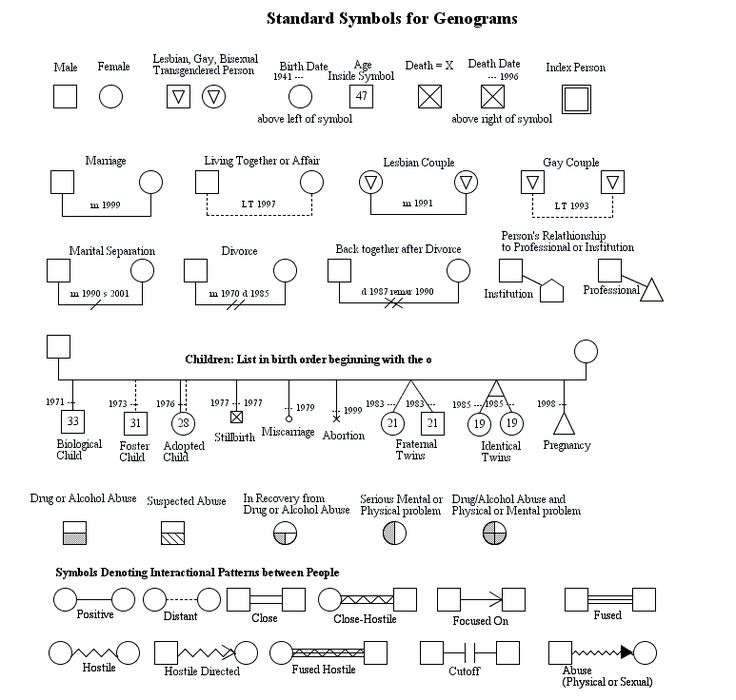 Girls born last, apparently, have a meaning. lower self-esteem than expected.
Girls born last, apparently, have a meaning. lower self-esteem than expected.
An only child. Growing up without siblings does not have any unusual impact on personality development. Only children in the family represent a disproportionately large proportion of the group of people with emotional disorders, and only sons have the strongest need for guardianship. Only children appear to be less likely to take responsibility for success than first-born and later children in the family. They are more likely to seek honey. help, and more than once, requiring more and more help with repeated appeals.
Interval between births. Same-sex siblings with smaller age gaps score higher on cognitive ability tests. First-borns with younger brothers and/or sisters, the difference in age with which does not exceed 3 years, show a more pronounced need for affiliation and assistance than the first children in the family with a large interval between births of children.
Parental influence. Firstborns report tighter parental control than later-born children. In research. Norwegian families found that in the eyes of parents, boys have a higher value than girls.
Firstborns report tighter parental control than later-born children. In research. Norwegian families found that in the eyes of parents, boys have a higher value than girls.
Parental authority is more recognized in adolescence by first-born sons than by later-born sons. Parental authority is perceived as the most significant in terms of learning. and economic interests of the first children in the family.
In the minds of people, mothers seem more accepting than fathers; young parents are perceived similarly compared to parents of a more mature age. Younger children perceive their parents as more accepting and tightly controlling than older children.
Sibling influence. Older siblings are perceived as having more power and influence, while younger ones appear to be more resentful and more likely to turn to their parents for help. In research. families with two children, the highest conformity was found in late-born girls in same-sex sibling couples. Men who show special affection for their older sister tend to marry women who have only younger brothers.
First-born and later female children tend to have a more pronounced social. orientation than first-born and later male children. The first-born and only children in the family mean. stronger propensity for self-disclosure, with both sexes revealing more to friends than to siblings, preferring siblings of the same sex. The greatest propensity for self-disclosure is found in those who have a sibling of their gender available for communication a year or two older than themselves.
IQ increases with maternal age and decreases with birth order.
The last children in families are represented by a disproportionately large proportion among chronic alcoholics, and the only children are among those who have sunk to the very bottom of the community. Firstborns—or at least the first boys in families—displayed a greater tendency to alcoholism than other children, especially when firstborn boys were forced from a very early age to provide all possible assistance in providing for their families.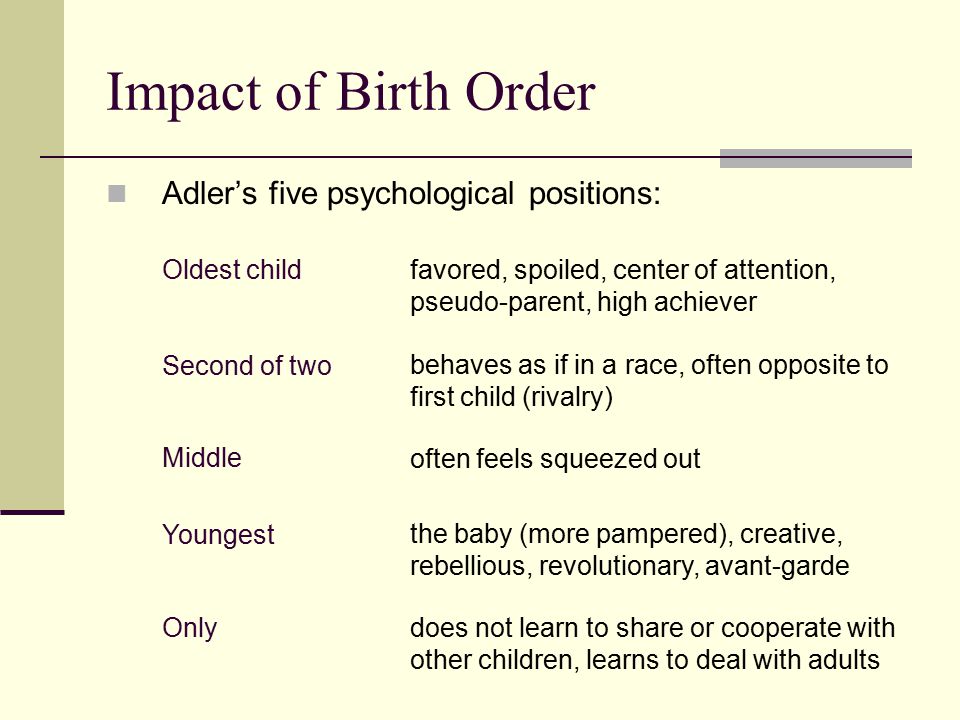
Academic achievements. The first children in families, compared with other categories of children, are more likely to go to college and have higher rates in intellectual and learning. activities. When in research the level of motivation is controlled, the differences between the first and last children in the family disappear.
National Merit Scholarship Qualifying Test scores decrease as family size increases and, within the same family, as birth order increases. An increased preoccupation with intellectual achievement is noted among firstborns with brothers. The first children in a family score higher on intelligence tests, and this ratio holds true regardless of mother's or father's education, family income, and maternal age.
Mental health. In one research schizophrenia, a disproportionately large representation of cases from the second half of P. r. was found, especially among patients from very large families. In other research. schizophrenia revealed an overrepresentation of early positions (early ranks) in a group of five or more siblings. The peak of schizophrenia is in the second position from the end, and this result was the same in all five studies.
The peak of schizophrenia is in the second position from the end, and this result was the same in all five studies.
In the military studies. camp, the only children in the family, compared with the first-born, more often consulted a psychiatrist, were recognized as "psychoneurotic" and were dismissed from the army. First-born diagnoses were distributed almost equally between psychoneurosis and personality disorder. Only a very few second-borns were diagnosed with psychoneurosis, while the diagnosis of personality disorder, on the contrary, was quite common among them.
Among persons with a tendency to develop paranoia, the highest percentage of firstborns is noted, while groups of average P. p. individuals have a high percentage of anxiety disorders. When first-born children speak to an audience, they show a much worse ability to recall material from memory than later children in the family. Firstborns also report more fear than those born later. Firstborns and only children in the family are more sensitive to pain, and firstborns are also more affiliative.
Marriage. There are probably more female firstborns among those attending prenatal courses than among women who were later children in the family. Male first-borns marry at a younger age than men who occupy subsequent places in the P. r. In dyads of first-born spouses, the age difference is less than in married couples where the husband and wife were not the first children in the family. Among women who marry in June, there are more first-borns than those who were the later child in the family. In the first and subsequent children (girls) in the family, no significant differences were found in the age of marriage and the duration of the period between betrothal and wedding.
A higher proportion of those who are or have been married is found among the oldest sons and among the oldest children in the family, and the lowest proportion among the youngest sons. Marriages concluded between the first-born and a later child in the family are more successful than marriages between the first-born or between persons occupying subsequent places in P.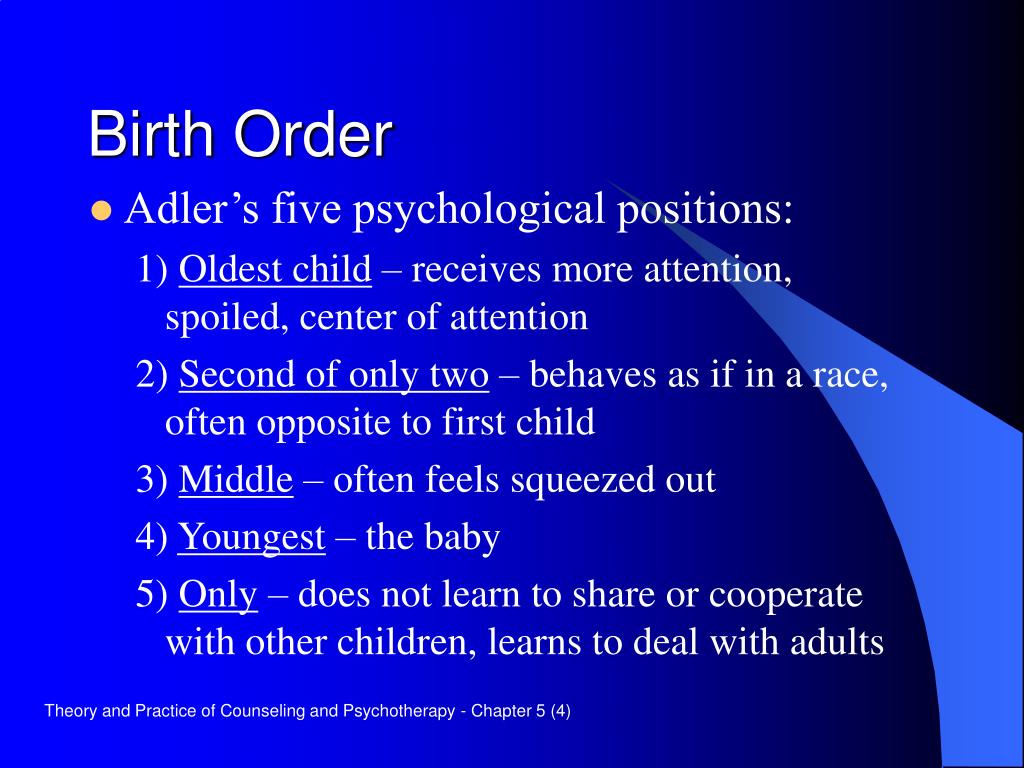 p.
p.
Delinquency. Juvenile delinquents come from families whose size is larger than average. Firstborns and delinquents from smaller families are better prepared for life in the society or have better socialization resources than children who occupy subsequent places in the P. of the river, or children from large families that exceed the average size. Children occupying the average for P. p. position most at risk of delinquency. First-borns make up a disproportionately small proportion of delinquents and are likely to be more likely to be on probation without violations than later children in the family.
Occupation. First-born females show significantly more interest in a career as a college teacher than non-first-born women; as for men, the first-born and those occupying subsequent places in P. p. show almost the same interest in this profession.
Women in non-feminine occupations are usually younger and more likely to be first-born, raised as children by working mothers, and mention men who had an important influence on their careers.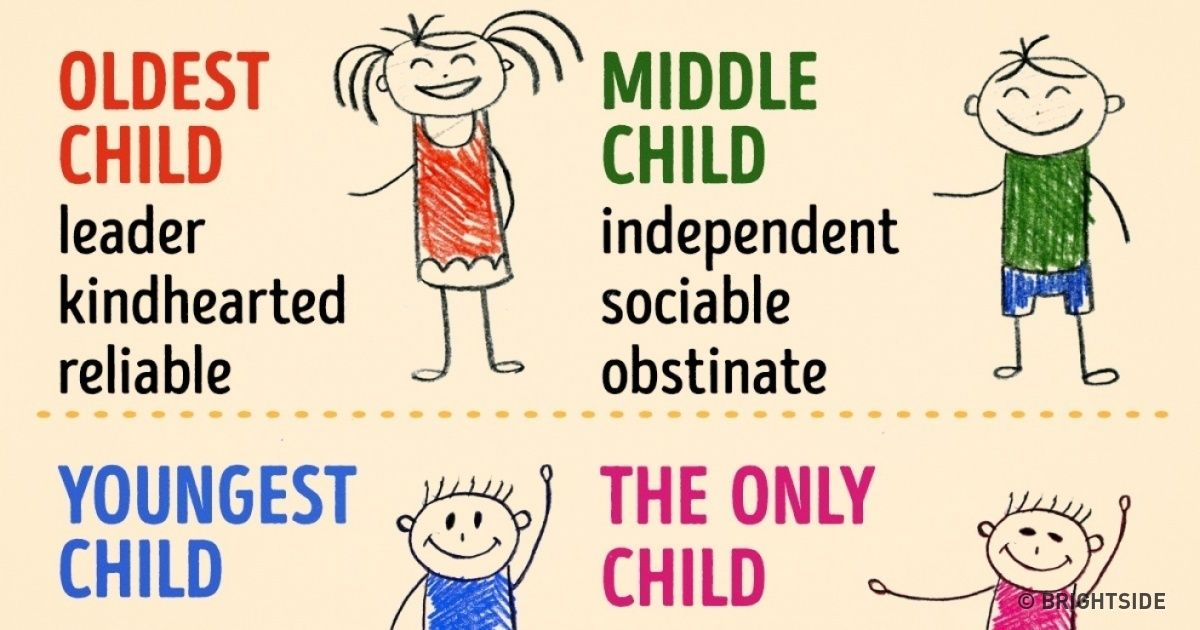
Gemini. Female twins are more likely to be born preterm by weight; the percentage of prematurity among twins is 7 times higher than with the birth of one child. Phys. defects are most common at max. prematurity. No significant difference was found in teachers' assessments of the general health of twins and non-twins. Mothers of dizygotic twins are older than mothers of monozygotic twins at the time of birth. The smaller weight of twins tends to persist until the early school years.
Twins raised separately from birth score higher on intelligence tests than twins raised together, but lower than non-twins. The first-born twin develops better psychomotor skills, regardless of birth weight. Psychomotor development in the first 6 months. more similar in monozygotic twins than in dizygotic twins. Developmental patterns are more related to birth weight than to birth order.
The twins show examples of immature solo play. The first-born twin is 15% more likely to have an IQ than the second-born; a twin with a higher weight is 65% more likely to have a higher IQ.